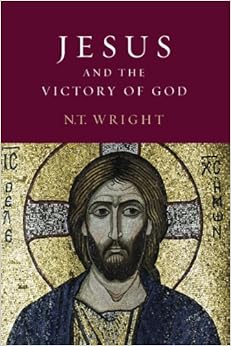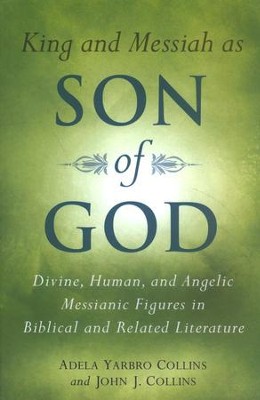“For it is not right that a worshipper of God should be injured by another worshipper of God.”
–Lactantius[1]
Historically, it is no secret that diverse Christianities have had difficulties dwelling together peacefully. Strife among God’s people can be traced almost anywhere, anytime to anything imaginable under heaven.
C. S. Lewis famously remarked that the quickest way to a desired destination – if a wrong turn has been taken – is to get back to the right road. The individual making an about-turn first, though seemingly counter-productive, is the most progressive.[2]
Doctrinal dissension has arguably proven to be divisive and destructive throughout the history of the Church.[3] This text is a prime example of such a battleground. It is a theological lithosphere of christological, pneumatological and ultimately Trinitarian layers which shifted[4] early and shook Christianity to its core for centuries.[5] Not only is there what some see as a proto-Trinitarian formation,[6] there is also an unavoidable subordinationist Christology present.[7]
As it happened, to argue that Jesus was equal in divine majesty to God the Father required “considerable literary ingenuity”[8] to explain these texts. The result was a widened rift between the subordinationists and those in favor of the Nicene Creed. Gregory of Nyssa described,
“If in this city you ask anyone for change, he will discuss with you whether the Son is begotten or unbegotten. If you ask about the quality of bread, you will receive the answer that, ‘the Father is greater, the Son is less.’ If you suggest that a bath is desirable, you will be told that ‘there was nothing before the Son was created.’”[9]
Having personally been involved in unavoidable, chaotic feuds merely for being open-minded theologically, I am more convinced than ever that relating to our brothers and sisters in Christ with peaceful and humane dialogue is the only way forward. One’s conviction on any given text is never grounds to degrade or deride a perceived theological opponent or, in consideration of Church history, use violence. “Loving one another,”[10] as so frequently and plainly taught within the Johannine corpus, should never be annexed for that which is speculative, and the subject of constant debate.
Regardless of one’s Christology, Jesus – as God’s executive agent and revealer[11] – has given a supreme example of perfect peace.[12] Though conflict came to him,
“Christ did not become what men were; he became what they were meant to be, and what they too, through accepting him, actually became.”
Before actually leaving, Jesus prayed: “[that] they may be one, as we are one” (John 17:22 NRS). Believers in Jesus have the hope that he will indeed return,
“He is the promise, but the Father is the fulfillment. What Jesus says here about his own death applies also to the death of individual Christians.”[14]
Until that time, we have the responsibility of emulating his example to love each other, even if our theological, doctrinal or political views don’t always mesh. By grasping onto the theme of the Prince of Peace we can bring the shalom[15] of the age to come into our present, one selfless action at a time. Let’s make an about-turn and get-on. “Let us go from here.” Let’s keep conversing, but be of the same mind and in the same love through humility while we do.[16]
[1] A Treatise on the Anger of God, 13.99 (ANF 7.271).
[2] C. S. Lewis, “Mere Christianity,” The Complete C. S. Lewis Signature Classics (New York, NY.: Harper One, 1952, 2002) 33.
[3] Swartley seems to imply that some are not as prone toward provocations of this nature: “Even among Mennonites, historically considered sectarian, one finds both high christology adhered to be some and a considerably lower christology adhered to by others.” Willard M. Swartley, Covenant of Peace: The Missing Peace in New Testament Theology and Ethics (Grand Rapids, MI: Wm. B. Eerdmans Publishing Co., 2006), 296 (fn. 48).
[4] Hans Küng, Christianity : Essence, History, and Future (New York, NY.: Continuum Publishing Co, 1996), 170-71.
[5] See Professor of Conflict Resolution Richard Rubenstein’s excellent book, When Jesus Became God: The Epic Fight over Christ’s Divinity in the Last Days of Rome (Orlando, FL.: Harcourt Brace and Company, 1999), 7-8.
[6] George R. Beasley-Murray, Word Biblical Commentary: John, vol. 36 (Dallas, TX.: Word, Incorporated, 2002), 261; Craig S. Keener, The Gospel of John: A Commentary, vol. 2 (Grand Rapids, MI.: Baker Academic, 2003), 2:976.
[7] C. K. Barrett, “The Father is Great Than I,” Essays on John (London, SPCK, 1982), 19-36; Karl-Josef Kuschel, Born Before All Time? : The Dispute Over Christ’s Origin, trans. John Bowden (New York, NY.: The Crossroad Publishing Company, 1992), 388.
[8] Charles Freeman, A.D. 381: Heretics, Pagans, of the Monotheistic State (New York, NY.: Overlook Press, 2009), 60.
[9] Joseph H. Lynch, Early Christianity: A Brief History (New York, NY.: Oxford University Press, 2010), 166.
[10] John 13:34-35; 15:12, 17; 17:26; 21:15-17. Even the Johannine Epistles carry this theme: cf. 1 Joh 3:10-11, 14, 16, 18, 23; 4:7-8, 11-12, 16-21; 5:2; 2 Jo 1:5.
[11] Barrett 1982, 23.
[12] F. F. Bruce points out, “the world can only wish peace; Jesus gives it.” F. F. Bruce, The Gospel of John: Introduction, Exposition and Notes (Grand Rapids, MI.: Wm. B. Eerdman’s Publishing Co., 1983), 307 (Fn. 14).
[13] John A.T. Robinson, The Priority of John, ed. J. F. Coakley (Oak Park, IL.: Meyer-Stone Books, 1985), 378.
[14] Ernst Haenchen, Robert W. Funk, and Ulrich Busse, John 2: A Commentary on the Gospel of John, Chapters 7-21 (Philadelphia, PA.: Fortress Press, 1984), 128. See (Keener 2003, 982).
[15] “Peace was believed to be a feature of righteous royal rule and of the messianic age.” Marianne Meye Thompson, John: A Commentary (Louisville, KY.: Westminster John Knox Press, 2015), 316
[16] Phil 2:1-3.


















